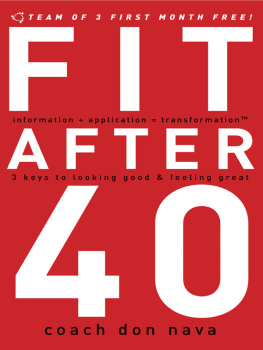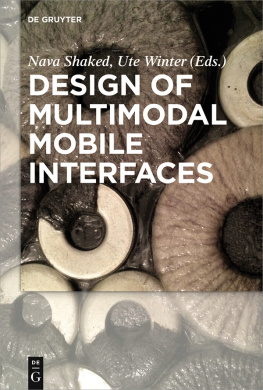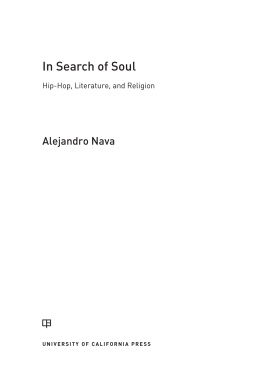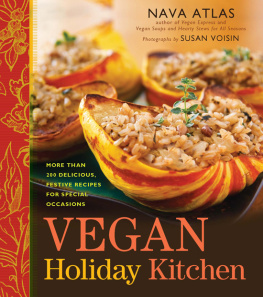Michael Nava - The Little Death
Here you can read online Michael Nava - The Little Death full text of the book (entire story) in english for free. Download pdf and epub, get meaning, cover and reviews about this ebook. genre: Detective and thriller. Description of the work, (preface) as well as reviews are available. Best literature library LitArk.com created for fans of good reading and offers a wide selection of genres:
Romance novel
Science fiction
Adventure
Detective
Science
History
Home and family
Prose
Art
Politics
Computer
Non-fiction
Religion
Business
Children
Humor
Choose a favorite category and find really read worthwhile books. Enjoy immersion in the world of imagination, feel the emotions of the characters or learn something new for yourself, make an fascinating discovery.

- Book:The Little Death
- Author:
- Genre:
- Rating:3 / 5
- Favourites:Add to favourites
- Your mark:
- 60
- 1
- 2
- 3
- 4
- 5
The Little Death: summary, description and annotation
We offer to read an annotation, description, summary or preface (depends on what the author of the book "The Little Death" wrote himself). If you haven't found the necessary information about the book — write in the comments, we will try to find it.
The Little Death — read online for free the complete book (whole text) full work
Below is the text of the book, divided by pages. System saving the place of the last page read, allows you to conveniently read the book "The Little Death" online for free, without having to search again every time where you left off. Put a bookmark, and you can go to the page where you finished reading at any time.
Font size:
Interval:
Bookmark:
Michael Nava
The Little Death
1
I stood in the sally port while the steel door rolled back with a clang and then I stepped through into the jail. A sign on the wall ordered the prisoners to proceed no further; more to the point, the word STOP was scrawled beneath the printed message. I stopped and looked up at the mirror above the sign where I saw a slender dark-haired man in a wrinkled seersucker suit, myself. As I adjusted the knot in my tie, a television camera recorded the gesture on a screen in the booking room.
It was six-thirty in the morning but the jail was as loud as if it had been six-thirty at night. The jail was built in the basement of the courthouse, and there were, of course, no windows, only the intense, white fluorescent lights that buzzed overhead. The jail was a place where people waited out their time and yet without day or night time stood still; only mealtimes and the change of guards communicated the passage of time to the inmates.
I moved out of the way of a trustee who raced by carrying trays of food. Breakfast that morning, the last day of July, was oatmeal, canned fruit cocktail, toast, milk and Sank. Jones stepped into the hall from the kitchen and acknowledged me with an abrupt nod. He had done his hair up in cornrows and his apron was splattered with oatmeal. Jones cooked for the population. He was also a burglar and an informant and his one great fear was coming to trial and being sentenced to time at the state prison in Folsom. Several of his ex-associates were there, thanks to his help. I had just been granted a further continuance of his trial, delaying it for another sixty days. Our strategy was to string out his case as long as possible so that when he inevitably pled guilty he would be credited with the time he served in county jail and avoid Folsom altogether. The district attorneys office was cooperative; the least they owed him was county time easy time, the prisoners called it. County was relatively uncrowded and the sheriffs relatively benign. On the other hand, county stank like every other jail Id ever been in. The stink was a complex odor of ammonia, unwashed bodies, latrines, dirty linen and cigarette smoke compounded by bad ventilation and mingled with a sexual musk, a distinctive genital smell. The walls were faded green, grimy and scuffed. The floor, oddly enough, was spotless. The trusties mopped it at all hours of the day and night. Busy work, I suppose.
Everyone in the public defenders office avoided the jail rotation. If the law was a temple, it was built on human misery and jails were the cornerstones. I minded the jail less than most, finding it psychologically, at least not so much different from a courtroom. So much of crime and punishment consisted of merely waiting for something to happen, for a case to move. But it was different, the jail, from the plush law school classroom, just a few miles away, from which I graduated ten years earlier determined to do good, to be good. I achieved at least one of those things. I was a good lawyer, and most days that was enough. I was aware, however, that I took refuge in my profession, as unlikely as that seemed considering the amount of human suffering I dealt with. It offered me a role to escape into, from what I no longer knew; perhaps nothing more significant than my own little ration of suffering.
I went into my office, a small room tucked away at the end of a corridor and where it was almost possible to hear yourself think. I picked up a sheaf of papers, arrest reports and booking sheets, the nights haul. There was the usual array of vagrants and drunk drivers, a couple of burglaries, a trespass. One burglary, involving two men, was the most serious of the cases so I gave it special attention. The two suspects were seen breaking into a car in the parking lot of a Mexican restaurant on El Camino. The police recovered a trunkful of car stereos, wires still attached. The suspects were black men in their early twenties with just enough by way of rap sheets to appeal to a judges hanging instinct. I gathered the papers together and went into the booking office.
Good morning, Henry, Novack drawled, looking up from the sports page. He had a pale, pudgy face and a wispy little moustache above a mouth set in a perpetual smirk. Novack treated me with the same lazy contempt with which he treated all civilians, not holding the fact that I was a lawyer against me. This made us friends of a sort.
Good morning, deputy, I replied.
We had ourselves a little bit of excitement here last night, he said, folding his paper. Los Altos brought in a drunk thats what they thought he was, anyway and it took three of us to subdue him.
What was he on?
Well we took a couple of sherms off of him when we finally got him stripped and housed, so it was probably PCP.
Why didnt I see an arrest report for him?
We couldnt book him until he came down enough to talk. Heres his papers.
I took the papers and asked, Wheres he at now?
In the drunk tank with the queens. Hes a fag.
Thats no crime, I reminded him.
Good thing, too, or wed have to charge admission around here.
I read the report. The suspects name was Hugh Paris. He stood five-foot ten, had blond hair and blue eyes. He refused to give an address or answer questions about his employment or his family. He had no criminal record. I studied his booking photo. His hair was in his face and his eyes went off in two different directions, but there was no denying he was an exceptionally handsome man.
How do you know hes gay? I asked.
They picked him up outside of that fag bar in Cupertino, Novack said.
He was arrested for being under the influence of PCP, possession of PCP, resisting arrest and battery on an officer. Geez, did the arresting officer go through the penal code at random? Novack scowled at me. Was anyone hurt?
Just scuff marks, counsel.
Was he examined by a doctor to determine whether he was under the influence?
Nope.
Did you ask him to submit to a urine test?
Nope.
Then all you can really prove against him is drug possession.
Well, Novack said, I guess thats a matter of interpretation between you and the D.A. Are you going to want to see the guy?
Ill talk to him, I replied, but first Ill want to interview these two, and I read him the names of the burglars.
I interviewed the burglary suspects separately. They were bored but cooperative. They knew the system as well as I did. They had nothing by way of defense so the best I could do for them was try to plead them to something less serious than burglary. Id observed that repeat offenders were the easiest to deal with, treating their lawyers with something akin to professional courtesy. All they wanted was a deal. It was only the first timers who bothered to tell you they were innocent. After the interviews ended, I walked back to the booking office and poured myself a cup of Novacks coffee. I flipped him a quarter and asked to see Hugh Paris.
They brought him in in handcuffs and a pair of jail blues so big that they fell from his shoulders and nearly covered his bare feet. His eyes were focused but he still looked disheveled. I thought, irrelevantly, of a picture of a saint I had seen as a boy, as he was being led off to his martyrdom. There was a glint of purity in Hugh Pariss eyes completely at odds with everything that was happening around him. The guard sat him down in the chair across from mine. I took out a legal pad and set it down on the table between us. I introduced myself as Henry Rios, from the public defenders office.
A lawyer? he asked, thickly.
Thats right, I said. How do you feel, Mr. Paris?
He gave me a puzzled look as if how he felt should be obvious, and asked, Are the handcuffs necessary?
The sheriffs think so, I said, studying him. Do you think youd be all right without them?
Font size:
Interval:
Bookmark:
Similar books «The Little Death»
Look at similar books to The Little Death. We have selected literature similar in name and meaning in the hope of providing readers with more options to find new, interesting, not yet read works.
Discussion, reviews of the book The Little Death and just readers' own opinions. Leave your comments, write what you think about the work, its meaning or the main characters. Specify what exactly you liked and what you didn't like, and why you think so.








